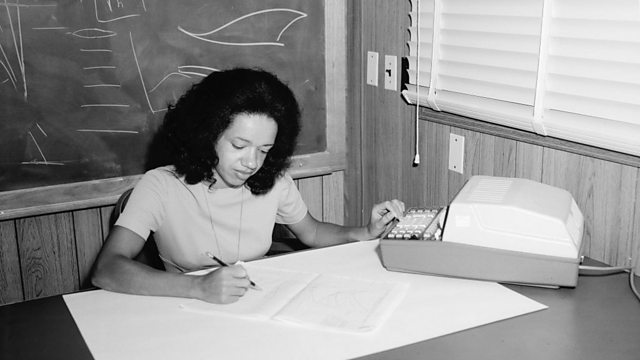When we think of the tech industry, we often think of the Silicon Valley giants — mostly white, and mostly male — but there’s an invisible thread running through the history of technology, connecting the contributions of Black women whose names and achievements often go uncelebrated. These women have shaped the digital world in incredible ways, yet their stories often go untold.
One prime example is Katherine Johnson, the brilliant NASA mathematician whose precise calculations ensured the success of John Glenn’s 1962 orbital flight, and the Apollo 11 moon landing. Her colleague, Dorothy Vaughan, NASA’s first Black supervisor, became a leader in computer programming, guiding her team of mathematicians through the transition to electronic computing, while Mary Jackson, NASA’s first Black female engineer, broke barriers in aerodynamics research, helping to design safer and more efficient spacecrafts.
These women were vital to the success of NASA’s missions, but it wasn’t until 62 years later that Katherine Johnson was recognised for her contributions, when she was awarded the Presidential Medal of Freedom by President Barack Obama in 2015. Vaughan and Jackson sadly remained uncelebrated until the release of the blockbuster film, Hidden Figures. Until then, their story was buried in the annals of history, rarely mentioned in classrooms or tech industry celebrations – yet their contributions to the space programme were not just essential, they were groundbreaking.
There’s also Annie Easley, a black mathematician and rocket scientist who worked for NASA and its predecessor, the National Advisory Committee for Aeronautics (NACA), where she developed software for NASA’s Centaur rocket; a high-energy booster that was integral to launching spacecraft and satellites into orbit, yet she didn’t receive public credit.
And it’s not just Johnson, Vaughn, Jackson, and Easley. Ada Lovelace may be remembered as the first computer programmer, but what about Dr. Gladys West, a mathematician whose work led to the development of GPS, which we use for our Satnav’s, mobile phones, and smartwatches in day-to-day life? Or Dr. Patricia Bath, a pioneering ophthalmologist and the first Black woman to receive a medical patent in the U.S?
In 1986, Bath invented the Laserphaco Probe, a device that revolutionised cataract surgery and restored the sight of millions. While not directly in the tech world as we often think of it, Bath’s contribution to medical technology literally helped people see the world more clearly, yet her name is rarely mentioned alongside other med-tech pioneers.
One name that might surprise you is Lisa Gelobter. If you’ve ever used a GIF (even if it’s just of David from Schitt’s Creek), you have her to thank. Gelobter played a significant role in the development of animation on the web, and was part of the team that developed Shockwave, a technology that helped make the internet a more visual and interactive space. Today, GIFs are part of everyday communication, be it on WhatsApp or even dating apps, but many don’t consider how they were created, or who by.
We also can’t forget our very own Maggie Aderin-Pocock DBE. While she continues to educate and inspire to this day, she is perhaps best-known for her work on the James Webb Space Telescope, helping to develop instruments that allowed us to explore the universe with more clarity than ever before. Maggie also played a pivotal role in creating cutting-edge image processing software used for ultra-precise measurements in scientific research, making it possible to analyse ultra-thin films at nanoscale level with incredible accuracy—a technology now used commercially.
These names might not ring a bell for most, but they should. Black women have been at the forefront of technological innovation since its inception—they were the coders, the mathematicians, the trailblazers who laid the groundwork for what would become the modern tech industry. Without them, many of the advancements we take for granted today simply wouldn’t exist.
As a Black woman in tech myself, I find their stories incredibly inspiring. When my daughter Alyssa and I created our app, Frobelles, we did so with the intention of making sure that young Black girls could see themselves represented in the games they play. But more than that, we wanted to ensure that they could imagine themselves as part of the future of tech, just like the women who came before us.
So, this Black History Month, I urge you to learn their names, share their stories, and explore the profound impact they’ve had on shaping the world of technology as we know it today. If they weren’t recognised then, they should be now.
By Yvonne Ottley. She and her 12-year-old daughter Alyssa co-founded Frobelles, the UK’s first afro hair-themed dress-up game, in 2018. By 2024, the brand has grown rapidly, with over 100,000 active users and a dedicated fan club. Frobelles has collaborated with tech giants Apple and Google Play, and was featured in the Startups 100 list for 2024. It expanded into the US market, secured licensing deals for both the UK and the US, and was nominated in the Startups DEI and Young Entrepreneur Award categories. Alyssa also won the Young Entrepreneur award at the FSB Awards, sponsored by NatWest.
- Yvonne Ottley-Awuah



